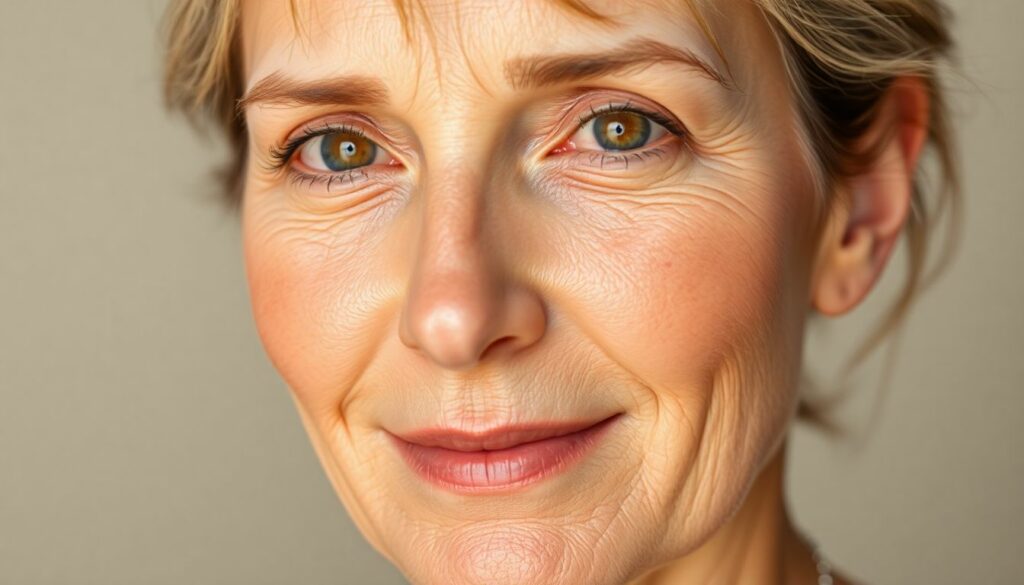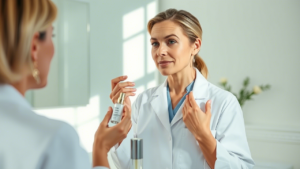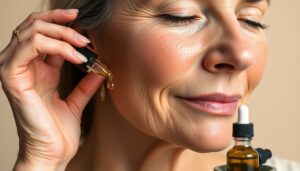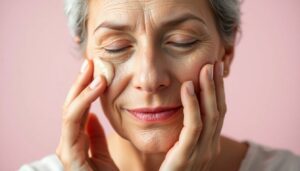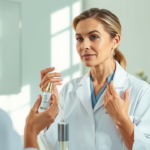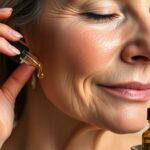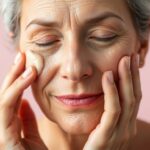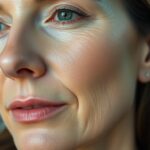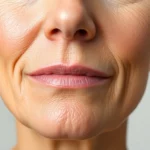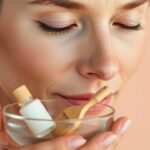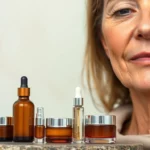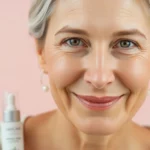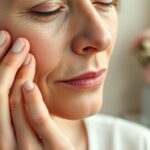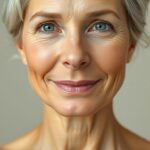Ever catch a look in the mirror and notice those little lines creeping around your eyes? Or maybe your skin just seems a little drier than it used to? We cannot stop aging skin, but that doesn’t mean we should stop taking care of it! An intelligent skincare routine works wonders to keep that glow on your skin as the years roll by.
The Science of Aging Skin Explained
One of the most noticeable affects of aging is skin aging. Several things cause it. These factors include cell changes, sun exposure, and even genetics. The good news? If we understand the causes of aging, we can combat them more effectively.
Collagen and elastin work in harmony to support skin firmness, elasticity, and overall health.
Collagen and elastin are proteins that help the skin stay firm and strong. Consider collagen the mattress frame and elastin the springs. Example even as we get older we have less of these. That causes skin to lose its bounce and begin to sag. Smoking, a bad diet and too much sun accelerate the process.
Free radicals and oxidative stress
Free radicals are unstable molecules that destroy cells. They originate from things like pollution, smoking and even routine body functions. This damage is referred to as oxidative stress. It degrades collagen and elastin, leading to wrinkles and age spots. A diet full of antioxidant-rich foods and antioxidant topical applications counteract free radicals.
How Hormones Drive This Change
Hormones have a huge impact on skin health, particularly for those assigned female at birth. Women in menopause have lower levels of estrogen. This causes dryness, thinner skin and decreased collagen production. Hormone therapy and some key skincare ingredients can help keep these changes in balance.
Creating your anti-aging skincare arsenal
The right products can make or break a good fall, and so much of that is about being comfortable. Here are some top-notch ingredients to help keep aging skin at bay.
Retinoids: The Gold Standard
Retinoids are the superheroes of aging skin. They are a form of vitamin A that increases collagen production, diminishes wrinkles and helps skin texture. Use a low strength and apply at night. Retinoids can cause your skin to be more sensitive to sunlight, so use sunscreen if you do.
Hyaluronic Acid: The Hydration Hero
Hyaluronic acid attracts moisture. It draws water into the skin, making it appear plump and hydrated. This acid can absorb its weight worth of water up to 1,000 times! After washing, use a hyaluronic acid serum to lock the moisture in.
Antioxidants — On a Mission Against the Free Radicals
Antioxidants help protect skin from damage. Vitamin C brightens the skin, and the boost in collagen. Vitamin E how to nourish and protect. Niacinamide soothes redness and evens skin tone. For best results, add an antioxidant serum to your morning routine.
Building a Daily And Weekly Routine
You have to be consistent to see results. Here’s how to put together a simple but effective skin-care routine.
The Morning Anti-Aging Ritual
Cleanse: Remove impurities with a gentle cleanser.
Treatment: An antioxidant serum such as vitamin C.
Moisturizing: Apply a hyaluronic acid-filled moisturizer
Sunscreen: Apply a broad-spectrum sunscreen with an SPF of 30 or higher.
The Evening Restorative Practice
Double Cleanse: Always use an oil-based makeup remover first, and then follow with a regular cleanser to thoroughly cleanse the skin.
Treatment: Apply a retinoid serum or other treatment.
Night Cream: Use a thick night cream to hydrate skin overnight.
Weekly Scrubbing and Masking
Exfoliate: Wet your entire face and use a gentle scrub or chemical exfoliant to remove dead skin.
Using a Hydrating or Anti-Aging Mask: For additional hydrating or anti-ageing benefits.
Age-Resistant Skin Through Lifestyle Choices
Skincare matters, but so much of this also has to do with the lifestyle. Maintaining a healthy and young skin takes care of your body.
The Power of a Healthy Diet
Your skin is directly related to what goes in your mouth. Vitamins and antioxidants are found in fruits and vegetables. Omegas 3, found in fish and flaxseeds, reduce inflammation. A diet is recommended for healthy collagen formation.
Hydration is Key
Moisturization, with water, provides skin hydration and plump. Try to drink eight glasses of water per day. Hydrated skin appears youthful and is less susceptible to wrinkle formation.
Summary: The Importance of Sleep and Stress Management
Sleep deprivation and stress can age the skin. Try for 7-8 hours of sleep every night. Engage in healthy coping mechanisms, such as yoga or meditation.
Dealing With Specific Concerns: Wrinkles, Age Spots, Etc.
Now, let’s address how to treat specific skin concerns.
Focusing on Fine Lines and Wrinkles
Peptides may reduce the appearance of wrinkles. Micro-needling encourages collagen production. More dramatic results come from professional treatments such as Botox and fillers.
Fading Age Spots and Other Areas of Hyperpigmentation
Age spots can be lightened with vitamin C and kojic acid. Chemical peels and laser treatments help, too. Wear sunscreen always to stop new spots from developing.
Bridging the Gap of Dryness and Losing Elasticity
Apply thick moisturizers containing ceramides and shea butter. Facial massages increase blood flow and enhance elasticity. Staying hydrated also helps.
Conclusion
Caring for your skin as you get older doesn’t need to be complicated. The good news is that with the right routine and healthy habits, they can keep their skin looking as young and radiant as they do. Just try to be consistent, patient and gentle with yourself. See: [15] This is the Last Age-head Battle You Will Ever Fight!
